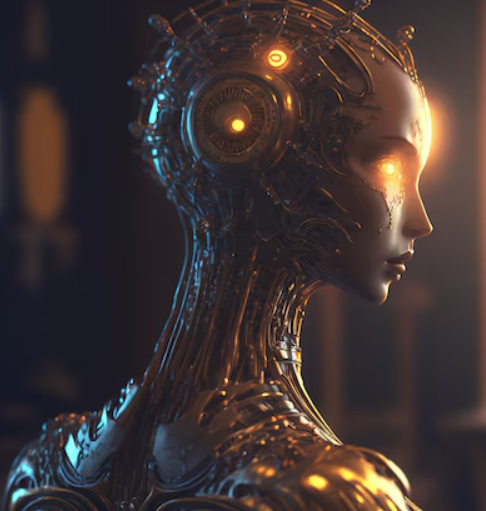Artificial intelligence (AI) has proven to be a powerful tool in addressing a wide range of global challenges. While there are concerns about AI’s impact on jobs and its potential to replace humans in the workforce, current developments show that AI is more than capable of solving complex real-world problems. In this article, we’ll explore how AI is helping to improve industries and everyday life in various sectors.
1. Healthcare
The healthcare industry is one of the most significant areas where AI is making a profound impact. AI systems are able to analyze vast amounts of data in record time, helping researchers and healthcare professionals make quicker and more accurate decisions. For example, AI can assist in determining the effectiveness of treatments or medications for specific patients, making it possible to test and optimize therapies before they are prescribed. By automating time-consuming data analysis, AI allows researchers to focus more on advancing medical knowledge and developing new treatments.
2. Wildlife Conservation
AI is playing a crucial role in wildlife conservation efforts. With the ability to process large amounts of data quickly, AI helps conservationists track animal movements, monitor habitats, and predict the likelihood of species extinction. It is also instrumental in combatting wildlife poaching and identifying illegal animal trade through online platforms. Additionally, AI helps assess the effects of climate change on ecosystems, enabling researchers to develop strategies to mitigate its impact on wildlife.
3. Learning & Training
AI is transforming education by personalizing the learning experience for students. AI-driven tools can adapt to each student’s learning style, making education more effective and engaging. For example, AI can assist teachers in understanding a student’s learning curve, providing tailored approaches to enhance their learning. Virtual teaching assistants powered by AI are also available to offer support and feedback, making education more accessible without human limitations.
4. Transportation
AI is revolutionizing the transportation industry by optimizing routes, reducing traffic congestion, and minimizing travel costs. Machine learning algorithms help improve logistics by evaluating real-time factors like weather and traffic conditions, determining the fastest and most efficient routes. This technology also contributes to the development of autonomous vehicles, aiming to make transportation safer and more efficient while reducing carbon emissions.
5. Hiring & Recruitment
AI is making the recruitment process more efficient by streamlining tasks like resume screening and candidate matching. HR departments can now use AI to quickly filter through large volumes of resumes, narrowing down the pool to the most relevant candidates. Predictive analytics further assist HR professionals by identifying patterns in hiring, helping to make more informed decisions. By automating routine tasks, AI frees up time for more meaningful interviews and candidate engagement.
6. Renewable Energy
In the renewable energy sector, AI plays a crucial role in managing energy distribution and optimizing resource use. By analyzing real-time data, AI helps energy providers better balance supply and demand, improving the efficiency of power grids. AI is also essential in the integration of renewable energy sources, such as solar and wind, into the energy grid, addressing issues like congestion and energy quality. Furthermore, AI helps identify energy leaks and inefficiencies, contributing to a more sustainable energy ecosystem.
7. Research and Development
AI is accelerating research and development in various fields by processing vast amounts of data and uncovering hidden patterns. Whether it’s in medicine, technology, or environmental science, AI assists researchers by identifying opportunities, creating models, and enhancing efficiencies. AI-powered platforms also support knowledge management, behavioral analysis, and intelligent infrastructure monitoring, enabling faster decision-making and problem-solving across industries.
8. Logistics and Operations
AI is transforming logistics by automating many of the tasks traditionally carried out manually. From route optimization and demand prediction to warehouse automation, AI helps businesses run more efficiently. For instance, AI can predict stock shortages and improve supply chain management by forecasting demand and adjusting delivery routes accordingly. Additionally, AI-driven automation in warehouses boosts productivity, reduces errors, and enhances safety by eliminating manual tasks.
9. Marketing and Sales
AI enhances marketing and sales strategies by providing insights into customer behavior and predicting future trends. AI tools can analyze customer data in real-time, helping businesses understand what products or services will likely appeal to different segments. AI-powered customer relationship management (CRM) systems help sales teams convert leads into customers by identifying patterns, providing personalized recommendations, and improving overall customer engagement.
Challenges of AI Implementation
While AI offers numerous benefits, its implementation does come with challenges. One of the biggest concerns is ensuring the security of AI systems. Since AI relies heavily on data, any alteration to the data could affect its outcomes. Additionally, there are ethical concerns about the misuse of AI, including privacy issues and the potential for bias in decision-making. It is essential to develop clear guidelines and regulations to ensure that AI is used responsibly and for the greater good.
Conclusion
AI has the potential to solve some of the most pressing problems in the world, from healthcare and education to environmental conservation and renewable energy. By automating tasks, providing insights, and improving efficiency, AI is enhancing various industries and making a positive impact on society. While there are challenges to overcome, the benefits of AI are undeniable, and as technology continues to evolve, we can expect even greater innovations in the future.


